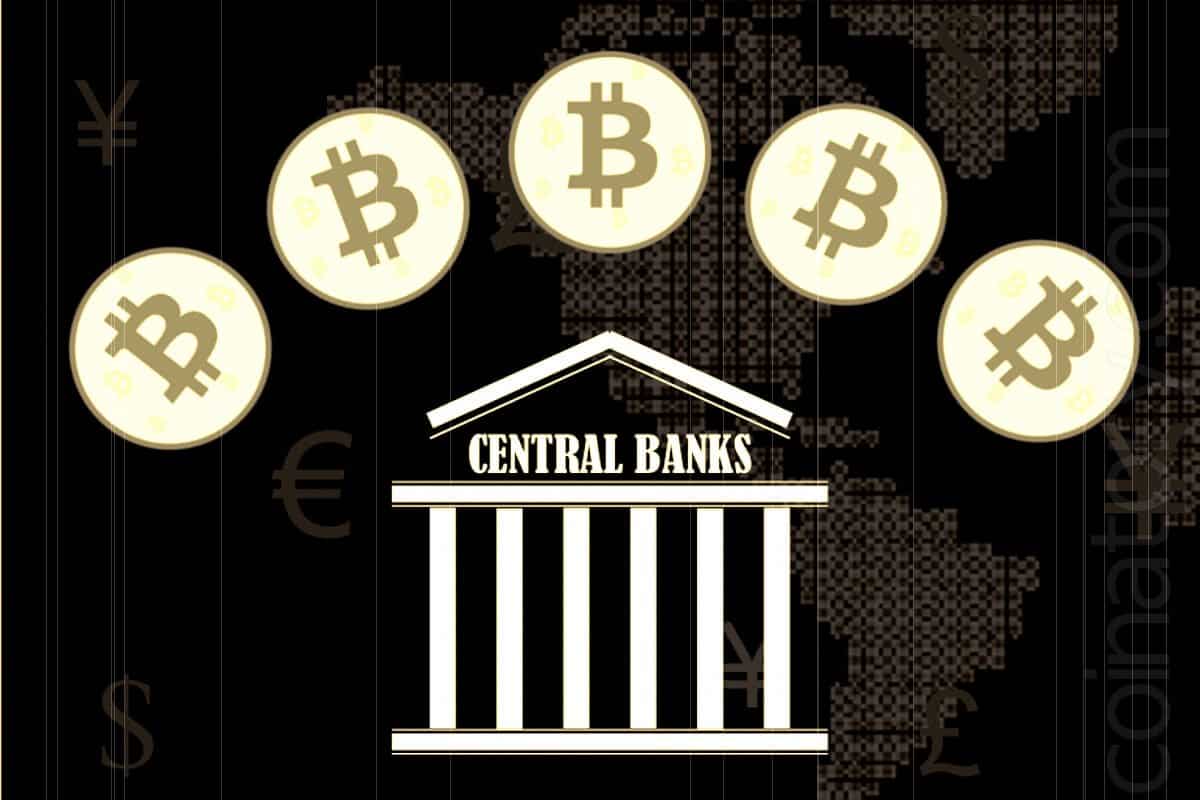
One of the many questions that have become philosophical, which for a long time causes discussions in the crypto community: Will the central banks of the whole world unite and create their own regulated cryptocurrency, as a replacement for existing decentralized coins?
However, this issue is unlikely to emerge from nowhere, as digital payments, according to various estimates, will reach a quantitative mark of 726 billion by 2020, as digital payment systems are rapidly gaining momentum, presenting an increasing threat to traditional cash payment methods, largely due to their convenience and low transaction costs.
At the same time, no doubt, central banks are unlikely to want to stand by and are likely already making plans for a “universal domination” over electronic payment systems, since they have seized control over the cash control system for a very long time.
Not so long ago, the European Union finally sounded the alarm, as bitcoin and the crypto community as a whole, apparently began to pose a rather serious threat to the traditional financial system, increasingly developing decentralized methods of payment, which, according to many analysts, has long provoked central banks to create own cryptocurrencies.
A report from Econ, an organization that analyzes the decisions taken by the Central Bank of Europe (ECB), clearly discerns the warning: “The appearance of legal cryptocurrencies created by banks, even central banks, can reverse the current level of competition in the cryptocurrency market, competing parties “.
Thus, the report traces the existence of a theory that central banks can fully use all their power and influence to influence cryptomarket, creating an extremely unstable situation and conducting preventive purchases. That is, banks can not only directly affect the bitcoin price, absolutely ruining it, but also destabilize the whole cryptomarket, affecting crypto exchanges, and even electronic wallets.
This report also says that the main vulnerability of bitcoin comes from the very structure of the mining industry since only 5 major mining pools control almost 80% of the bitcoin hashpower.
View from the outside
However, it is quite understandable why ECB is concerned about cryptocurrencies. Europe is the main “pool” of cryptocurrencies since 42% of the total number of bitcoins are concentrated, 37% of the leading crypto companies and 33% of all crypto payments in the world are in the EU. However, despite such extensive indicators, only 13% of the miners’ activity is concentrated in Europe.
Moreover, the Econ report itself has more questions than answers. Especially considering the contradictory attitude of central banks to cryptocurrencies.
In addition, Bengt Holmström, the Nobel laureate of 2016, who won the Nobel Prize in Economics, warned that such a move (the introduction of the own cryptocurrency by the central banks) would create a very high level of risk for existing financial markets, and also greatly affect the ability of central banks to monitor the events of the “theory of the Black Swan” (preventing randomness).
In any case, the probability of independent destabilization of the government and large financial institutions, through the creation of altcoins, is extremely small.
While banks are quite persuasive in their speeches that they can control or even prohibit the movement of cryptocurrency in hot wallets, in reality, they can not in any way affect the cold wallets, where, at the moment, 98% of all available bitcoins turnover is kept. Moreover, the massive black markets that are in darknet, not only can easily maintain the viability of the industry, but even continue to develop it.
The more likely outcome is that central and commercial banks will, at last, begin to perceive cryptocurrencies as alternative financial instruments, like gold, securities, or bonds. Cryptocurrencies can even help central banks control inflation.
To understand how this works, let’s turn to reality: the Swiss Central Bank, in 2017, made a profit of 54 billion francs ($ 55 billion), which is about 8% of Switzerland’s GDP, and that’s more than Apple, JPMorgan and Berkshire Hathaway combined.
Such a huge indicator translates from a simple pattern: the bank continues to print more money to release them later on into the global market to buy stocks and bonds, and at the same time avoid inflation within the country.
This is almost the same as the Federal Reserve System of the USA, the Central Bank of Europe and the Central Bank of Japan in 2016. Instead of buying gold, stocks, and bonds, banks can issue extra money for the cryptomarket to create foreign reserves.







